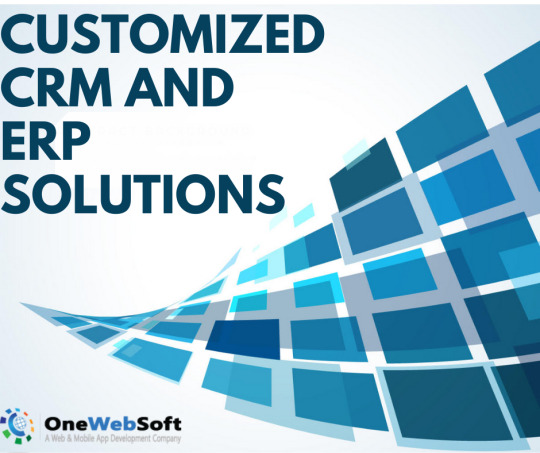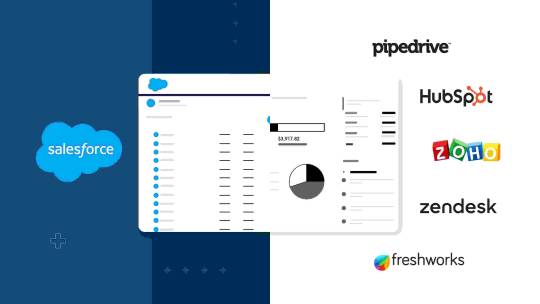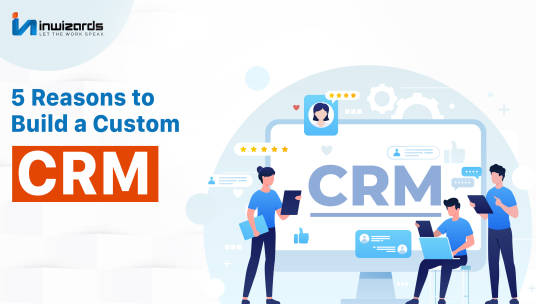#crm software
Text
Is Business Analytics Hard

Here’s the breakdown:
The Basics Aren’t Scary: Business analytics uses tools you might already be familiar with, like Excel and data visualization software. Plus, the core concepts involve analyzing data to answer business questions — something we do intuitively in everyday life.
The Challenge Lies in the Details: As you delve deeper, you’ll encounter statistics, programming languages like SQL or Python, and data wrangling (cleaning and organizing messy data). These skills require dedication, but there are plenty of beginner-friendly resources and courses available.
Experience is Your Best Teacher: The real challenge lies in applying your knowledge to solve real-world business problems. Understanding your specific industry and translating data insights into actionable solutions is where the magic happens.
So, is Business Analytics Hard?
Not inherently. It requires a blend of skills: some technical know-how, analytical thinking, and a good dose of business acumen. But with the right resources and a willingness to learn, anyone can develop these skills.
Here are some tips to make your business analytics journey smoother:
Start with the fundamentals: Learn basic data analysis techniques, get comfortable with data visualization tools, and brush up on your Excel skills.
Embrace online learning: There are countless online courses, tutorials, and even boot camps dedicated to teaching business analytics.
Find a mentor. Connect with experienced business analysts who can guide you and answer your questions.
Practice makes perfect: Look for opportunities to apply your learnings to real-world data sets, even if it’s a personal project.
The Takeaway:
Business analytics is a rewarding field with excellent career prospects. Don’t be intimidated by the initial learning curve. With dedication and a passion for data, you can unlock the power of business analytics and make a real impact in today’s data-driven world.
7 notes
·
View notes
Text
Is it Mandatory to Hire ERP Consultant?
Answer is YES
The Crucial Role of ERP Consultants Why You Need Them Before Jumping into ERP
Embarking on an Enterprise Resource Planning (ERP) implementation is a significant step for any organization. It promises streamlined processes, enhanced efficiency, and improved decision-making. However, the journey towards successful ERP adoption is laden with complexities and challenges that can derail even the most well-intentioned initiatives. This is where ERP consultants come into play, serving as invaluable guides and partners in the ERP journey. Here's why you need them before taking the plunge into ERP:
Expertise in ERP Systems
ERP consultants are seasoned professionals with extensive knowledge and experience in various ERP systems. They understand the nuances of different platforms, functionalities, and their suitability for diverse business needs. Their expertise helps in selecting the right ERP solution tailored to your organization's requirements, ensuring maximum returns on investment.
Business Process Analysis
One of the critical aspects of ERP implementation is aligning the system with existing business processes. ERP consultants conduct comprehensive analyses of your current workflows, identifying inefficiencies, bottlenecks, and areas for improvement. They then map these processes to the functionalities offered by the ERP system, ensuring a seamless integration that optimizes operations.
Customization and Configuration
No two organizations are exactly alike, and a one-size-fits-all approach rarely yields optimal results in ERP implementation. ERP consultants assist in customizing and configuring the system to suit your specific business needs. Whether it's tailoring modules, designing workflows, or defining user roles, their expertise ensures that the ERP solution aligns perfectly with your organizational structure and objectives.
Change Management and Training
ERP implementation often entails significant changes in workflows, roles, and responsibilities within an organization. Resistance to change can impede the adoption and success of the new system. ERP consultants facilitate change management strategies, helping employees understand the benefits of ERP, addressing concerns, and fostering a culture of acceptance and adaptation. Additionally, they provide comprehensive training programs to equip users with the skills and knowledge needed to leverage the full potential of the ERP system.
Project Management and Risk Mitigation:
RP implementation is a complex undertaking involving multiple stakeholders, timelines, and resources. Without proper project management, it's easy for projects to spiral out of control, leading to delays, cost overruns, and subpar outcomes. ERP consultants oversee the implementation process from inception to completion, ensuring adherence to timelines, budgets, and quality standards. They also proactively identify and mitigate risks, minimizing potential disruptions and ensuring a smooth transition to the new system.
Post-Implementation Support
The journey doesn't end with ERP go-live. Post-implementation support is crucial for addressing issues, fine-tuning the system, and maximizing its long-term value. ERP consultants provide ongoing support and maintenance services, helping organizations resolve technical glitches, optimize processes, and adapt to evolving business requirements.
In conclusion, ERP implementation is a strategic initiative that demands careful planning, execution, and support. By engaging ERP consultants early in the process, organizations can leverage their expertise to navigate the complexities of ERP adoption successfully. From system selection to post-implementation support, ERP consultants play a pivotal role in ensuring that your ERP journey is smooth, efficient, and ultimately, transformational for your business.
2 notes
·
View notes
Text
Forex Licesning with ForexCRM

ForexCRM offers a comprehensive Forex Licensing service, streamlining the process of obtaining the necessary licenses for your forex brokerage.
Regulatory Compliance: ForexCRM guarantees compliance with pertinent laws and regulations by helping clients comprehend and fulfill the regulatory criteria for running a forex brokerage.
Licensing Advice: We assist clients in navigating the difficulties of acquiring the required licenses from regulatory bodies by offering professional advice on the licensing procedure.
Documentation Support: To expedite and reduce delays, our staff helps clients prepare and arrange the necessary documentation for license applications.
Regulatory Updates: We help clients stay compliant with the constantly changing regulations in the forex market by keeping them updated on changes in regulatory standards.
Process Accelerated: We assist in speeding up the licensing process by utilizing our resources and experience, which cuts down on the time and work needed to secure regulatory approval.
Compliance Monitoring: To make sure that clients continue to adhere to regulatory requirements even after receiving licenses, ForexCRM provides continuous compliance monitoring services.
Expertise in the Field: With a comprehensive understanding of currency rules, our team of industry professionals offers clients invaluable guidance and insights during the licensing procedure.
Peace of Mind: Clients may feel secure knowing they have a committed partner assisting them in fulfilling regulatory requirements and effectively launching their forex brokerage by working with ForexCRM for licensing services.
For More Details Visit
or
Call/Whatsapp us at +971 58 833 9499/ +971 52 217 5380
or
Email: [email protected]
4 notes
·
View notes
Text
I just think it's funny that one of the most important programs that archeologists use (Cultural Resource Managment) has the same initials as the English voice of Professor Layton (Christopher Robin Miller).
#professor layton#christopher robin miller#crm software#like that's just a little coincidence#but i do think it's fun#queue takumi defense squad
5 notes
·
View notes
Text

Here are the benefits of using Recruitment Software :
Cost-effective: Using recruitment software saves money by making the hiring process more efficient, so you spend less on finding and hiring new employees.
Enhanced candidate experience: Candidates have a better time applying for jobs because the software makes the process smoother and more personalized.
Easier collaboration: People involved in hiring can work together more easily because the software helps them share information and make decisions faster.
Client satisfaction: Companies that use recruitment software can find better employees more quickly, which makes their clients happier
To know More visit our Website - https://www.intellohire.com/in/
2 notes
·
View notes
Text
Clinical Management
A goal among recently introduced healthcare technologies is the improvement of the patient experience. For example, Let’s consider a patient who visits a nearby healthcare center. The on-duty doctor in the care center may not know the patient visited two weeks ago for the same cough. It would be helpful if these patients’ details were stored in a single database, leading to better diagnosis and treatment, collecting all patient’s pertinent information, regardless of where the patient visited.
Clinical management is a platform for managing doctor-patient interaction and recordkeeping. It brings together a wide range of data from several sources in one location, providing you with a complete picture of everything about each patient, both clinical and non-clinical. This method allows for more personalized, quick, and intimate attention.
Patients can also utilize this platform at any time and from any device to contact and communicate with staff, discover answers to frequently asked questions, fill out paperwork before their appointment, and more.
This platform protects all the data it manages, making its use fully secure and reliable. Users and healthcare professionals may access all patient information in real time, including medical history and planned health check-up visits.
It combines data from multiple sources, medical devices, electronic devices, and wearables into a single location.
2 notes
·
View notes
Text
Elvis CRM Demo: Your Gateway to Business Excellence!
youtube
#startup#sales#marketing#entrepreneur#business#crm#crm software#crmexperts#automation#innovation#information technology#Youtube
2 notes
·
View notes
Text
Elevate Your Business with the Top Salesforce Consulting Solutions of 2024
In the ever-evolving landscape of business technology, Salesforce stands as a beacon of innovation, and choosing the Best Salesforce Consulting Services can be a transformative decision for your business. As of 2024, the competition is fierce, and businesses are seeking the guidance of the Best Salesforce Consulting Company to leverage the full potential of this powerful CRM platform.
The Best Salesforce Consulting Services offer more than just technical expertise; they provide a strategic roadmap to elevate your business to new heights. Whether it's optimizing sales processes, enhancing customer engagement, or implementing robust data analytics, these consulting services tailor Salesforce solutions to meet the unique needs of your organization.
Partnering with the Best Salesforce Consulting Company ensures that your business receives personalized attention and a tailored approach to Salesforce implementation. From initial consultation to ongoing support, these experts guide you through the intricacies of Salesforce, empowering your team to make the most of this cutting-edge technology.
As the business landscape becomes more competitive, investing in the Best Salesforce Consulting Services becomes a strategic move to stay ahead. By unlocking the full capabilities of Salesforce, businesses can enhance efficiency, boost customer satisfaction, and drive sustainable growth in 2024 and beyond.
Salesforce Practices: Simplifying Business with Effective Solutions
Navigating the realm of Salesforce practices doesn't have to be complicated. Salesforce ERP Software solutions and services offer a simplified approach to enterprise resource planning. From managing customer relationships to streamlining internal processes, Salesforce ERP Software services provide a unified platform for comprehensive business management.
Salesforce Application Management Services and Solutions take the hassle out of software operations. Whether it's troubleshooting, updates, or customization, these services ensure that your Salesforce application runs smoothly. Salesforce Application Managed Services and Solutions provide ongoing support, allowing your team to focus on core business activities while leaving the technicalities to the experts.
For businesses looking to stay current with the latest Salesforce features, Salesforce Implementation and Upgrade Solutions and Services offer a straightforward path. These solutions guide organizations through the process of adopting new features, ensuring that they make the most of the evolving capabilities of the Salesforce platform.
In 2024, simplifying business operations with Salesforce practices is the key to staying agile and competitive. By embracing Salesforce ERP Software solutions and services, businesses can streamline their processes, enhance customer relationships, and thrive in the dynamic landscape of the modern business world.
2 notes
·
View notes
Text
3 notes
·
View notes
Text
To boost sales, first, understand your customers and their needs. Then, tailor your offerings accordingly. Next, create effective marketing campaigns using online and offline channels, including social media. Train your sales team in communication and persuasion. Offer limited-time promotions to spur sales and use a Customer Relationship Management (CRM) system for personalized marketing. Provide top-notch customer service for repeat business. Encourage upselling and cross-selling. Implement loyalty programs and optimize your e-commerce site. Analyze sales data, study competitors, and network for new opportunities. Content marketing, feedback collection, and diversification are also vital. Adapt these strategies to your unique situation and refine them for success.
#saas software#salesdevelopmentrepresentative#Sales Booster#sales techniques#crm software#boostsales#customer service#SalesBoost#CustomerFocused#SalesTraining#EffectiveMarketing#PromoMania#CRMPro#CustomerDelight#UpsellSuccess#LoyaltyRewards#EcommerceTips
2 notes
·
View notes
Video
youtube
जन समाधान ऐप - Your Ultimate Political Leadership Companion #crm #crmsof...
#youtube#crm#crm software#politics#JanSamadhaanApp#politicalleaders#politicalleadership#electionstrategy#election2024#minister
2 notes
·
View notes
Text
The Art and Science of CRM Software Development
Introduction
Customer Relationship Management (CRM) software has become the backbone of successful businesses in today's competitive landscape. CRM software development involves creating robust platforms that enable businesses to manage interactions with customers, analyze data, and enhance overall customer experiences. This article explores the world of CRM software development, its importance, and how it revolutionizes the way businesses cultivate and maintain meaningful relationships with their customers.
1. The Power of CRM Software
CRM software serves as a comprehensive tool that empowers businesses to understand, engage, and nurture their customer base. From tracking interactions to forecasting trends and automating tasks, CRM software streamlines processes and enhances the efficiency of customer-facing activities.
2. Customized Solutions
Off-the-shelf CRM solutions might offer a starting point, but custom CRM software development takes personalization to a new level. Tailoring CRM systems to the unique needs and workflows of a business ensures that it aligns seamlessly with existing processes and provides maximum value.
3. Centralized Data Hub
CRM software acts as a centralized hub for customer data. It consolidates information from various touchpoints, such as emails, social media interactions, and purchases, providing businesses with a holistic view of each customer's journey and preferences.
4. Enhanced Customer Insights
One of the most significant advantages of CRM software development is its ability to provide valuable insights into customer behavior and preferences. Businesses can analyze data to identify patterns, segment audiences, and tailor marketing strategies for maximum impact.
5. Personalized Customer Experiences
Today's consumers value personalized experiences more than ever. CRM software enables businesses to deliver personalized content, recommendations, and offers based on customer data, leading to higher engagement and loyalty.
6. Automation and Efficiency
CRM software development integrates automation into various aspects of customer management. Tasks like lead nurturing, follow-ups, and customer support can be automated, freeing up valuable time for teams to focus on more strategic activities.
7. Sales and Marketing Alignment
CRM software bridges the gap between sales and marketing teams. By tracking customer interactions and behavior, both teams can work together more effectively to target leads, nurture prospects, and convert them into loyal customers.
8. Real-time Collaboration
Modern CRM software offers real-time collaboration features, allowing teams to work together seamlessly regardless of their physical locations. This fosters effective communication and ensures that everyone has access to up-to-date customer information.
9. Measuring ROI and Analytics
CRM software enables businesses to measure the return on investment (ROI) of their marketing and sales efforts. Advanced analytics and reporting features provide insights into which strategies are working and where improvements can be made.
10. Scalability
As businesses grow, their CRM needs evolve. Custom CRM software development ensures scalability, allowing the system to accommodate increased data, users, and functionalities without compromising performance.
Conclusion
CRM software development has transformed how businesses manage and nurture customer relationships. From personalized experiences to streamlined processes, the benefits of CRM software are vast. By investing in custom solutions that cater to their unique needs, businesses can gain a competitive edge, enhance customer satisfaction, and drive growth in the ever-evolving landscape of customer relationships.
2 notes
·
View notes
Text
We customize our solutions to fit your specific needs. We aim to transform the way that you do business. We're responsive. We have the experience in web designing, mobile application development, ecommerce website development, custom software, Digital Marketing. We design Web and Mobile software that delivers best-in-class performance at affordable prices. One WebSoft

#website#website design agency#Ecommerce website design#dynamic website#static website#start up#indore#banglore#india#indian#mobile app development#crm software#erp software
2 notes
·
View notes
Text
Best Salesforce Alternatives for Small Businesses
Salesforce is one of the most popular and feature-packed CRM. Businesses use it for lead management, workflow automation, and more. Where this is a bit tricky to handle and quite expensive at the same time. However, there are many affordable and easy-to-use CRM options available in today's competitive business industry. Let's get to know about the top 5 Salesforce Alternatives for CRM.

5 notes
·
View notes
Text
5 Reasons to Build a Custom CRM

A CRM system is an essential tool for businesses to manage customer interactions effectively. There are numerous CRM software options available in the market.
In this article, we’ll delve into five reasons why it’s wise to invest in building a custom CRM. Firstly, custom CRMs are tailored to meet specific business needs and workflows, leading to more efficient processes and increased productivity. Secondly, custom CRMs offer enhanced security measures and better data privacy protection. Thirdly, a custom CRM can integrate seamlessly with your existing systems, providing a unified view of customer data.
Finally, building a custom CRM can be more cost-effective in the long run, as businesses can avoid ongoing licensing fees and expensive customization costs associated with off-the-shelf software.
Unique Functionalities
One of the primary benefits of creating a custom CRM system is the ability to add unique functionalities that are customized for your business. Pre-built CRM software may not provide the flexibility required to tailor your customer interactions and user experience. With a custom CRM, you can add personalized dashboards, customized reports, and workflows that match your business processes.
This can significantly improve productivity and efficiency, as well as provide a competitive advantage over businesses that use generic CRM solutions.
Integration with Another System
Building a customized CRM system provides an opportunity to integrate it seamlessly with other essential business systems. Pre-packaged CRM solutions may not offer the required level of integration, which can lead to disconnected data silos and inefficient processes. A bespoke CRM solution can be designed to work in tandem with other critical systems, such as ERP, accounting, and marketing automation software.
This creates a unified view of customer data, streamlines operations, and eliminates manual data entry errors. Customized integrations also help automate repetitive tasks, freeing up valuable employee time.
Security Data
One of the most significant advantages of creating a custom CRM system is the ability to implement robust security measures to protect customer data. Pre-built CRM software can have vulnerabilities that leave customer data at risk of external threats, which can compromise customer trust.
A custom-built CRM system allows businesses to design security protocols and data privacy policies that align with their specific needs. This includes implementing encryption, access control, and data backup and recovery measures.
Eases Scaling Process
Creating a custom CRM solution can help businesses ease the scaling process as they grow. As a company expands, its customer management requirements become more intricate, and out-of-the-box CRM software may not be adequate to handle the increased workload.
With a customized CRM solution businesses can tailor their CRM system to meet their evolving needs, adding features, functionalities, and integrations as required without switching to a new CRM platform entirely.
What is CRM Application Development?
CRM application development is the process of building a customized customer relationship management system for businesses. Such systems are designed to help businesses manage their customer interactions, optimize their sales and marketing processes, and improve customer retention rates. Although there are off-the-shelf CRM solutions available, a custom CRM application provides businesses with a bespoke solution that caters to their unique needs.
The development process for a custom CRM application typically involves several stages. Firstly, a comprehensive analysis is conducted to understand the specific challenges and opportunities that the CRM system needs to address. This includes an evaluation of the current processes, data structures, and integrations that are in place.
Next, the development team creates a customized solution that addresses the identified challenges and opportunities. This may involve the creation of new features, the integration of existing software and systems, and the implementation of tailored security and privacy measures.
The coding and testing phases follow the design phase, with the development team creating the software and testing it thoroughly to ensure that it meets the business’s requirements and functions correctly.
Conclusion
Creating a customized CRM solution provides businesses with a wide range of benefits that cannot be found in off-the-shelf CRM software. A tailored CRM application offers unique features and functionalities that address a business’s specific needs, enhancing the effectiveness and efficiency of its sales and marketing processes.
Moreover, Custom CRM Applications can be seamlessly integrated with existing software and systems, streamlining operations and saving time and resources. Additionally, custom CRM systems offer advanced security features that protect customer data, reducing the risk of data breaches and ensuring compliance with data protection regulations.
#crm software#crm development#crm solutions#crm software development company#CRM Software Development Service#crm implementation#crmintegration#CRM#crm development company#web development company#web development services
2 notes
·
View notes